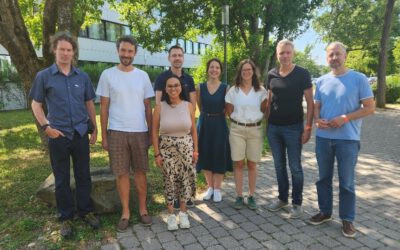The Earth Observation Research Hub has invited Dr. Luis Inostroza from the Mendel University, Faculty of Regional Development and International Studies, in Brno in Czechia.
On Tuesday the 23rd of May, he will present at the Geographic Colloquium at the Institute of Geography and Geology in HS222 at 4pm. We cordially invite you to the presentation.
His talk is titled: The urban ecosystem. Can cities be sustainable at all?
Abstract: While the urban era is fully determining our lives, as it was announced by Lefebvre in the early ’70s, we continue experiencing increasing challenges to conceptualize, analyze, and measure cities and their impacts. The conceptual apparatus we inherited from theoretical and applied disciplines to deal with the urban question seems overcome by the paramount challenges posed by planetary urbanization, the ecological crises and climate change. However, at the beginning of the XXI century, the urban challenge remains more epistemological than operational. I would like to explore some angles of these questions looking at urban as dynamic systems far from equilibrium, determined by the laws of thermodynamics, having, therefore, a particular metabolism that is materialized in distinguishable spatial structures, that can be conceptualized and measured as ecosystems looking at their material side. I will concentrate on aspects of expansion, informality, metabolic fluxes and heat to explore the regularities that we found present in most urban systems. Using examples from Latin America and Europe I will illustrate some possible entry points for a generalized urban hypothesis that brings ecology to the center of the urban epistemological discussion including ontological as well as operational aspects.


Plesse see here for past joint work with Luis Inostroza: https://www.sciencedirect.com/science/article/abs/pii/S0169204618306455








